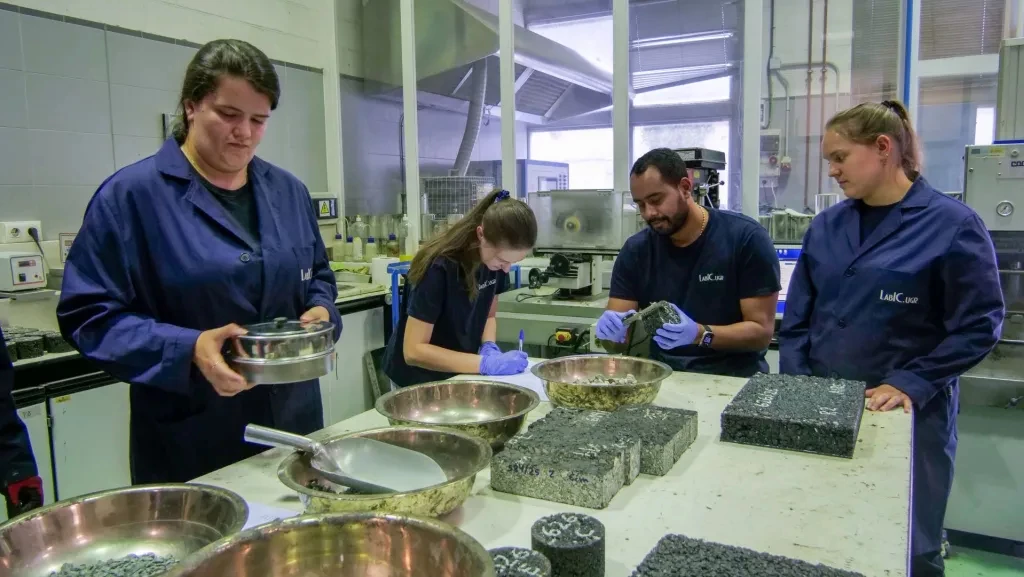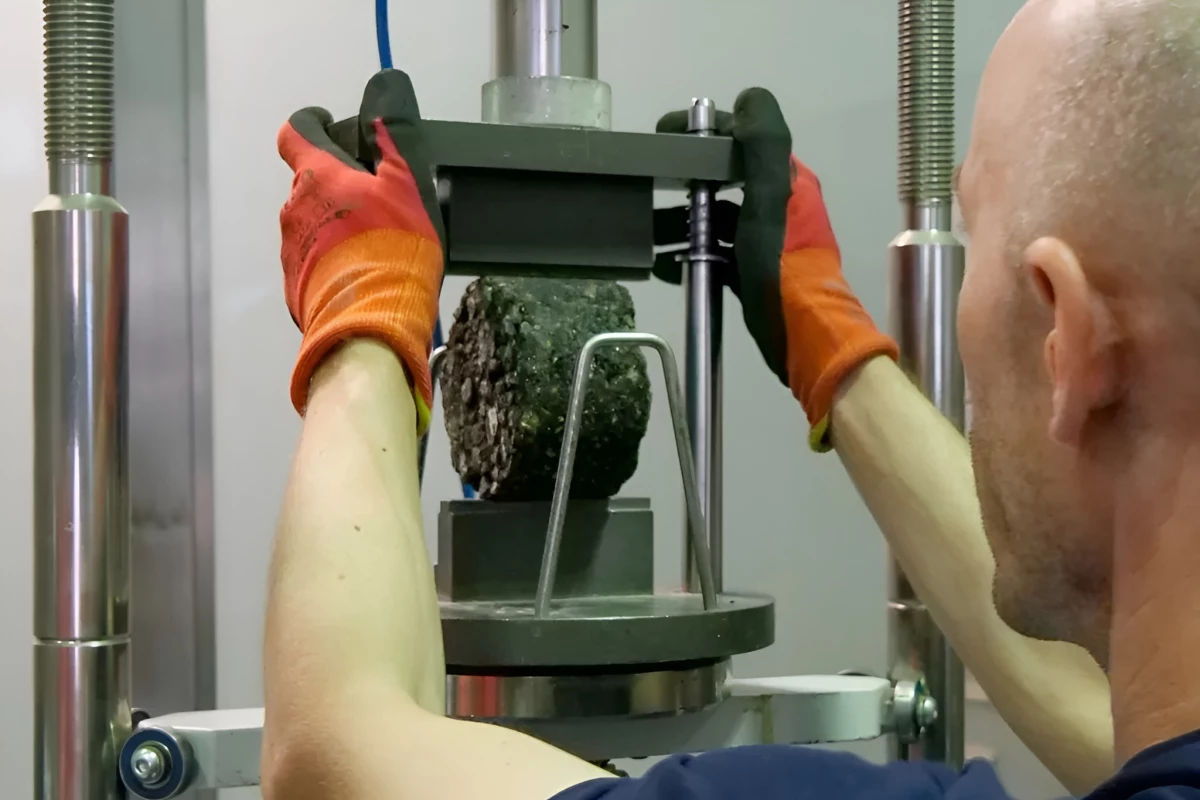While we're used to seeing cigarette butts littering public roads, such butts may soon be making their way into those roads, strengthening them in the process. It's all part of a new recycling effort, which should also reduce the need for road repairs.
The initiative is being led by scientists from Spain's University of Granada and Italy's University of Bologna, with the government of China serving as a co-funder. It builds upon a previous study conducted at Australia's RMIT University.
Although cigarette butts of any type could be used, the scientists focused their attention on butts from electronic cigarettes. These are longer than conventional cigarette butts, thus containing more of the sought-after filtration materials.
The scientists began by removing the ashy residue from the ends of used e-cig filters, which were composed mainly of cellulose and PLA (polylactic acid) fibers. Those de-ashed butts were then shredded and mixed with a synthetic hydrocarbon wax, which served as a binder. The resulting mixture was subsequently pressed, heated, and cold-cut into the form of pellets.
Those pellets, along with old asphalt harvested from deteriorated roads, were finally mixed with bitumen to create new asphalt which was 40% butt pellets and recycled road material by weight. As the pellets came into contact with the hot bitumen, their synthetic wax melted, releasing the cellulose and PLA fibers into the asphalt matrix.

Serving almost like tiny bits of rebar, the firm-yet-pliable fibers reinforced the new asphalt, while also making it more flexible than it would be without them. As a result, it proved to be less prone to cracking under load than conventional asphalt. And as an added bonus, the pellets' wax modified the viscosity of the bitumen, allowing the enhanced asphalt to be produced at lower, more energy-efficient temperatures.
A paper on the research was recently published in the journal Construction and Building Materials.
Source: University of Granada




